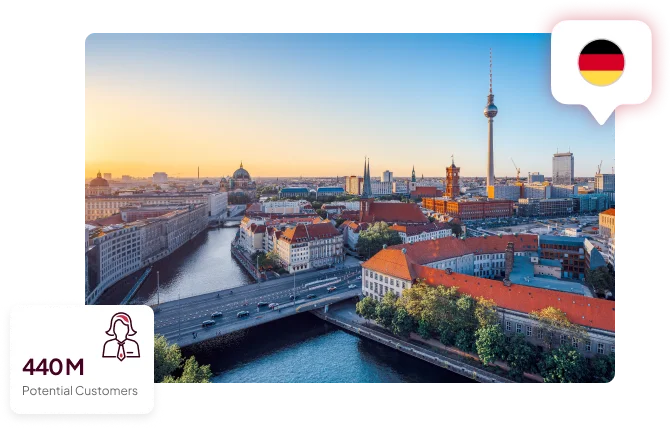Expand to Germany effortlessly. Our guidance streamlines opening a subsidiary company, offering support at every step.

A subsidiary is a company controlled by a parent company that owns over 50% of its voting stock. Both are separate entities for taxation and regulation. They must follow the laws of the subsidiary’s country. Recently amended in the EU, the Parents-Subsidiary Directive now requires the parent company to hold only 10% of shares to qualify for withholding tax exemption, reducing double taxation with the parent company’s tax counted against the subsidiary’s profits tax.


The most common legal form for a subsidiary in Germany is the GmbH (Gesellschaft mit beschränkter Haftung), which is a private limited liability company. Other options include UG (Unternehmergesellschaft), a mini-GmbH, or AG (Aktiengesellschaft) for larger businesses.
Yes, 100% foreign ownership is permitted. There are no restrictions on foreign shareholders or directors, although at least one managing director must be appointed (they do not need to be a German resident).
To register a GmbH, a minimum share capital of €25,000 is required, with at least €12,500 paid up at the time of incorporation. For a UG, the capital requirement starts from just €1.
Required documents include:
Documents must be translated into German and notarised.
The process typically takes 2–4 weeks, including:
We offer full setup support to accelerate this timeline.
Open A European Company.com is a trading name of Universal Company Incorporations Ltd. Universal Company Incorporations Ltd is a company registered in England and Wales with company number 08455371
+44 (0) 20 8421 7470
9:00 am-5:00 pm
Profile West Suite 2, Floor 1, Great West Road, Brentford, TW8 9ES
The information and any commentary on the law contained on this website is provided for information and guidance purposes only. Every reasonable effort is made to make the information and commentary accurate and up to date, but no responsibility for its accuracy and correctness, or for any consequences of relying upon it is assumed by Open A European Company, its directors , employees or associated websites.
The information and commentary on Open A European Company’s site does not, and is not intended to amount to legal advice to any third party on a specific case or matter. You are strongly recommended to obtain specific, direct legal advice from professional advisers whether these be your own advisers or those that appear on the OpenAeuropeancompany.com site. You should consider taking advice both in the country in which you are domiciled and in the country in which you are seeking to open a company. and not to rely on the information or comments on this site.
©2025 Open a European Company